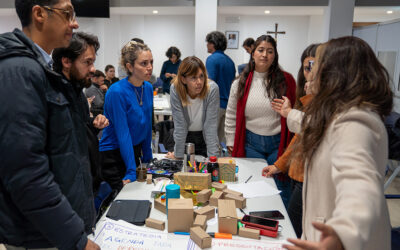Isn’t insisting on dialogue actually just caving in to relativism, where you only need good manners in politics without caring about fundamental values? The “Movement of Politics and Policy for Unity (MPPU) is not a political party, but a space for dialogue in parliaments and cities, between all coalitions. It proposes that we reflect on the soul of representation in order to overcome the crisis, through consensus-driven, deliberative democracy. The tool we use is an “elected-electorate pact.” It’s not about good manners; it’s a proven method, one of fraternity, that leaves us free and equal in our diversity. It is possible to rediscover the soul of politics beyond a pragmatism that has no ideals, in order to serve the common good with the “love of loves,” as Focolare’s founder Chiara Lubich taught. We’ve started a series of dialogues about topics that are both lofty and practical. We approach these through reasoning, and certainly not what currently tends to happen, which ranges from insults to all out frontal assault. That’s no longer acceptable. Where does democracy risk – and not just in Italy – losing its soul? Representative democracy is in crisis because of the dominance of globalized finance over the everyday economy and politics itself. Weak parties are easily influenced by one lobby or another. The end of ideologies often coincides with a lack of ideals. What’s needed is a hearty injection of popular participation, in order for citizens and the parties to commit to solving issues such as employment, social justice, peace and disarmament, mitigating risks, standing against mafias and corruption, and preserving the common good and the great cultural and environmental resources we have here in this country. The elected-electorate pact that we have seen in a number of parliaments and councils can bring citizens closer to their institutions and give a soul to a representative democracy, which is enriched by being deliberative and consensus-driven. MPPU has stayed current, addressing issues where there is genuine conflict. What are the most urgent items you would like to take on today? The Movement of Politics and Policy for Unity is above all a fraternal meeting space for people who are active in most of the different political parties. And this is not a problem; it’s enriching. In recent legislation we have made social and civil rights a priority. Now we think that the most urgent issues to face are jobs for young people and fighting poverty. We need to disarm the economy and convert factories that produce weapons to civil uses, especially in a country whose Constitution “repudiates war.” We need integration beyond just welcoming immigrants and their children, without forgetting the importance of security and lawfulness. Are there practical proposals that you are thinking of putting forward? MPPU needs to facilitate, alongside its work in the halls of government and commissions, practical proposals from parliamentary workshops, where different political cultures meet with academics and competent members of civil society. We can promote a series of dialogues in the legislature, both on an idealistic and practical level. Source: MPPU online
Base your choices on love
Base your choices on love




0 Comments